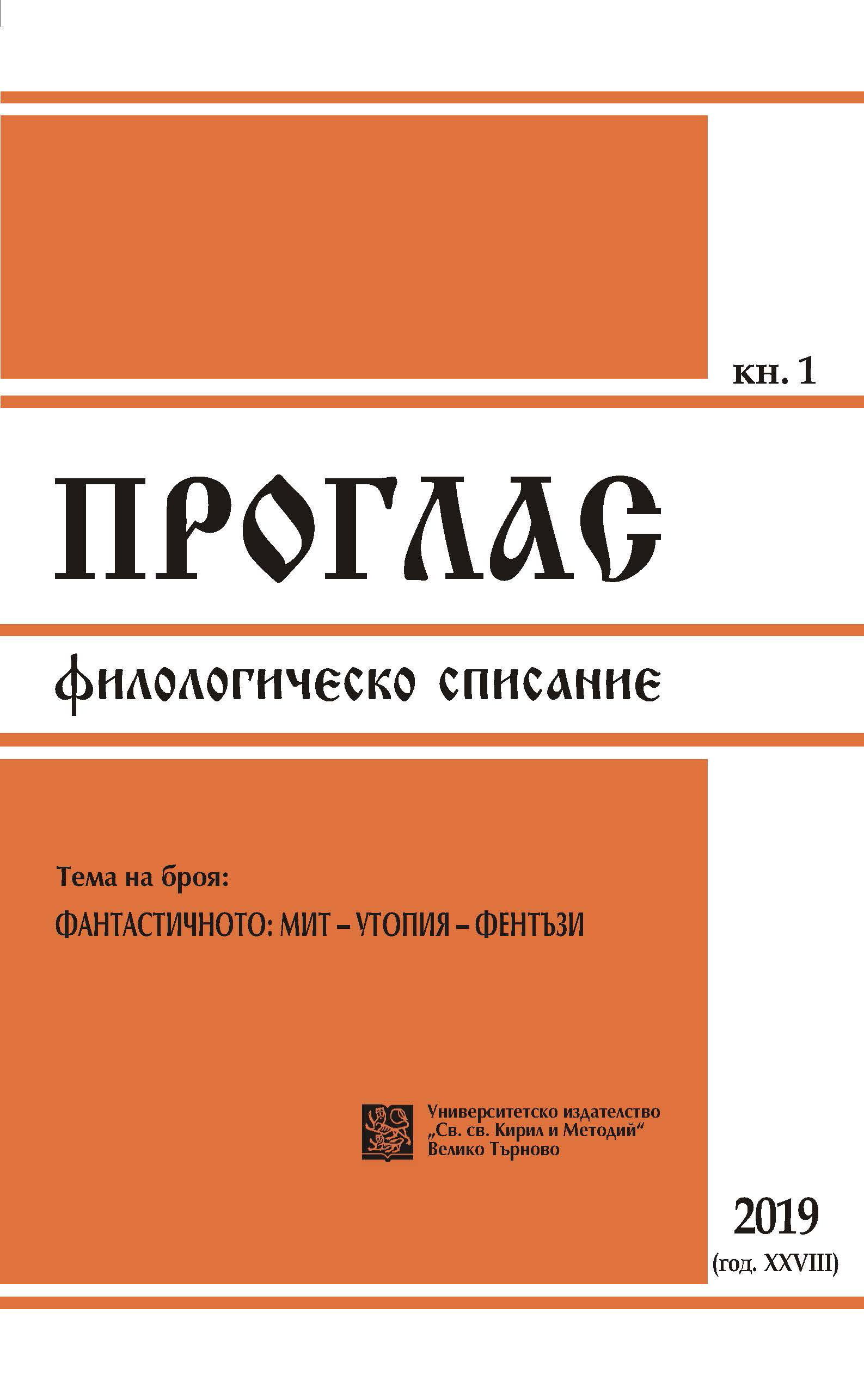
We kindly inform you that, as long as the subject affiliation of our 300.000+ articles is in progress, you might get unsufficient or no results on your third level or second level search. In this case, please broaden your search criteria.

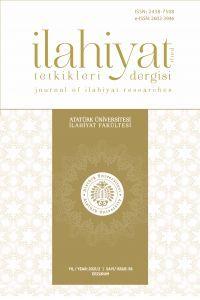
To understand a religious tradition, it is very important to know the socio-cultural accumulation of the community, which has that religious tradition, such as folklore, mythology, literature, and art. This is because ethnological data are used to understand and interpret the actions, mutual relations, belief systems, religious societies and institutions, rituals and customs of religious people or people with a religious tradition. In the light of these data, literary works that mirror the society in particular reflect the human understanding and worldview of their civilizations in a sense by revealing the quality of their relations with their individuals, society, culture and Creator. In this study, it is aimed to make a historical phenomenological comparison of two different worlds, namely the worldviews and cultures hidden behind these two literary texts by evaluating the perspectives of eastern and western cultures on human, society and socio-cultural life, which are revealed within the framework of Ḥayy and Robinson models.
More...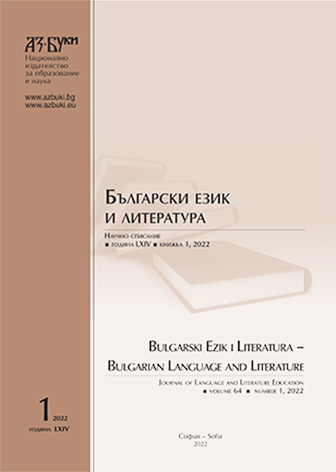
Attention to the tensions between vernacular and cosmopolitan languages has been growing in recent years. This article discusses various aspects of vernacularity, focusing on Dante’s classic treatise, as well on twentieth-century authors, and reflects on its significance for how one understands 'world literature'.
More...
The study traces the interrelationships between literature and the musical forms fugue and passion. Significant for the analysis is the information about the personality of Bach and the science of onomastics. I find a connection between the names of the characters of the novel and the great composer. I initiate a new reading of the traditional musical form of passion and the novel by exploring biblical and musical elements, finding that they are deconstructed by the author to create unconventional meanings.
More...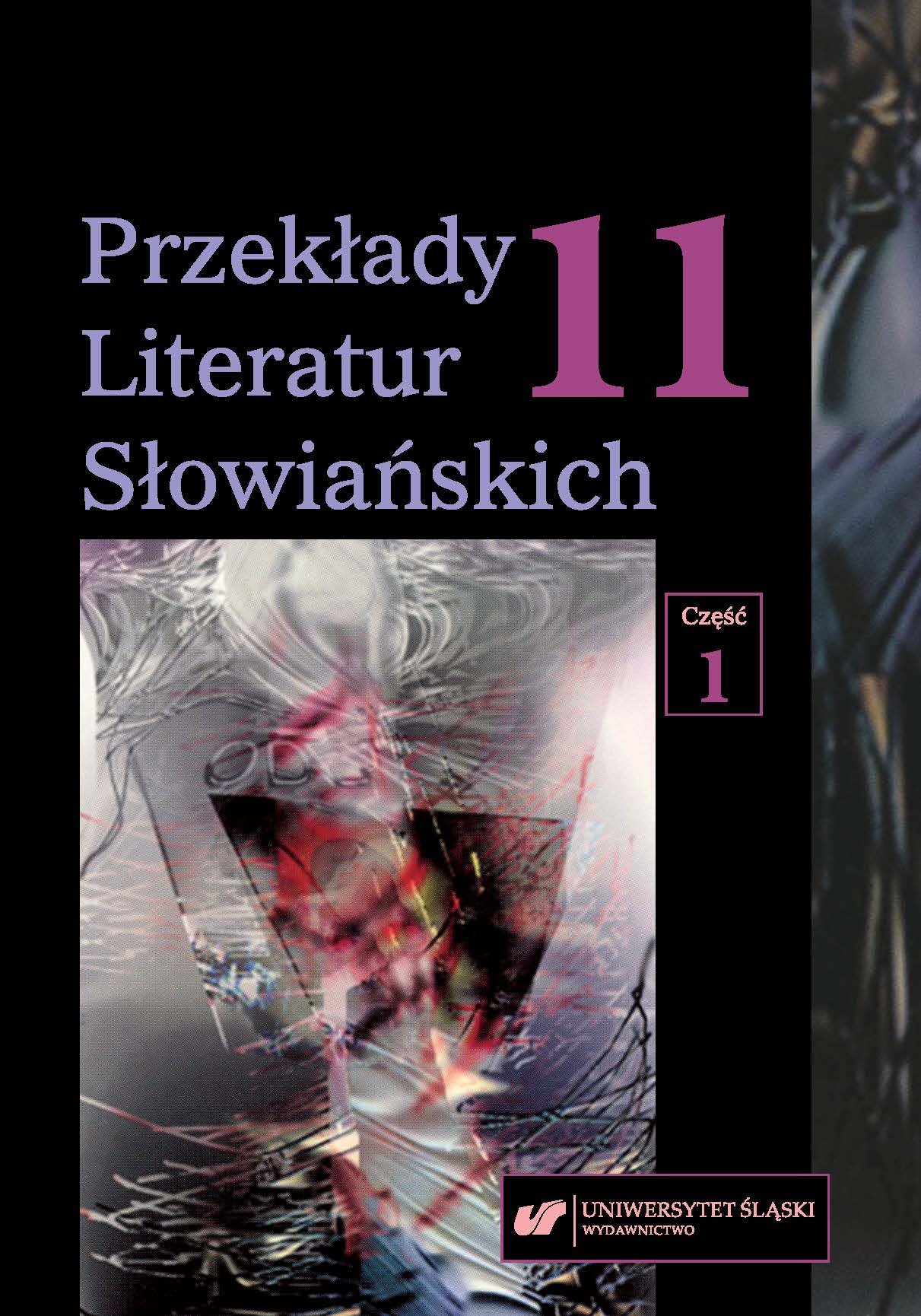
The paper deals with the Polish translation of Friedrich Nietzsche’s Also sprach Zarathustra made by the Polish writer Wacław Berent (1905). The translation is considered in the context of its epoch (“Young Poland”) and of Berent’s own literary work. The analysis aims at distinguishing the most important stylistic features of the translation: poetic devices typical of Young Poland, such as archaisms, neologisms, and reinforcement of the original’s audial qualities. Despite being criticized as “mannerist”, Berent’s translation appears as an innovative example of modernist translation, consistent with the symbolist model of translation.
More...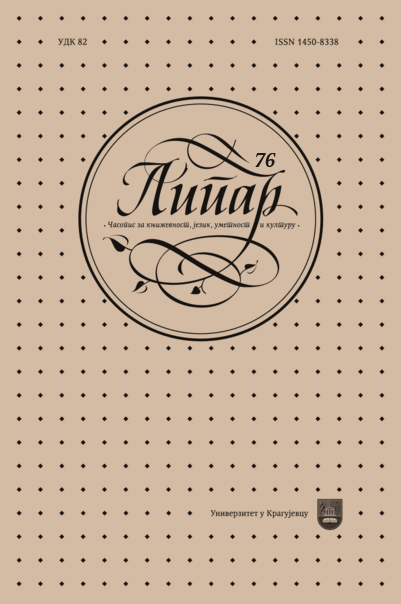
Traumatic experience such as the Holocaust requires traumatic ways of representation. Those who dare to write about it encounter various dilemmas and difficulties in finding the right ways to write about something that cannot be written about. Train trope is a usual symbol of the biggest XX century trauma because rail- way system and different types of cars enabled transportation of millions of people from the whole Europe, whose lives were terminated in the death camps, as well as their wealth, gold and other valuables. Trains found their way in literature with both survivor writers and those who didn’t experience the Holocaust. The symbol of train had been interpreted within psychoanalysis of dreams as passage of time and life before it started to operate as a symbol of the very death in reality. In this paper we tried to investigate how train trope functions in this trauma based literary genre with those writers who were inside and those who felt them as cultural heritage. Those who were inside death trains, such as Elie Wiesel, insisted that the only way of representation has to be in documentary and realistic style. On the other hand, writers who were lucky not to experience the hell on Earth couldn’t write from the ‘inside’ and had to find other ways of representation. Their styles vary from allegory in Kosinsi’s autofictional novel to magic realism in David and Thomas’s novels. Thomas also adds Freudian psychoanalysis while Pinter experiments with stage representation.
More...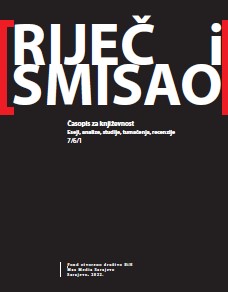
The aim of the paper is to present the subversive role of literature on the example of the Feral Tribune magazine and library. The analysis begins by listing the types of repressive measures the magazine was dealing with in the time of SFRJ and independent state of Croatia which ultimately led to the cancellation of the magazine in 2008. Following the literary procedures in the published texts, the interpretation deals with forms and contexts of literature which are deemed as subversive in the Feral. As examples of the most important art forms in the Feral, the author singles out the columns Bilježnica Robija K. and Greatest shits, shorthand forms of burlesque comedy, provocative aphorisms and travestied forms of poems published in the magazine. Additionally, the paper is also looking into the method in which the publishing venture of the Feral Tribune library subversively influences the social and cultural atmosphere of Croatia and its vicinity. The criteria of the book selection for the library itself and the manner in which the literary discourse of the chosen works was undermining nationalist and clero‑fascist metanarratives are further explained in the final part of the paper.
More...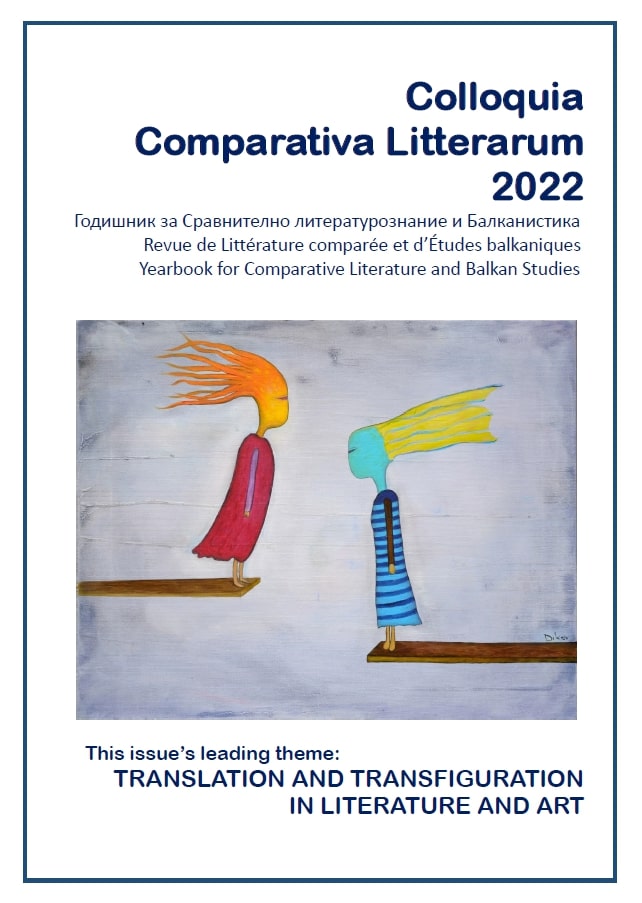
Book review: Books as Events in Europe and the Ottoman Empire (17th c. -19th c.). Editors: Nadezhda Alexandrova, Raya Zaimova, Anna Aleksieva. Sofia, Bulgarian Society for Eighteenth Century Studies, 2020.] http://bulgc18.com/wp-content/uploads/2020/08/Dalgiat-osemnadeseti-vek-3.pdf
More...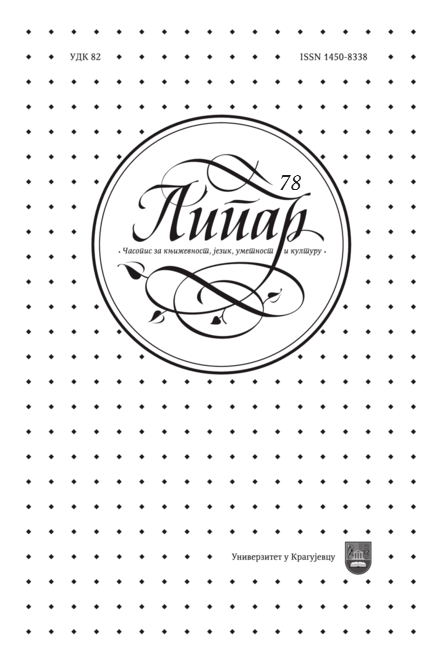
Homi Baba, American-Indian literary theorist and philosopher of cul- ture, is one of the key figures in postcolonial theory. His original contribution is in the introduction of the terms „hybridization“, „mimicry“, „cultural difference“,„ambivalence of colonial discourse“ and „third space“, which enriches the repertoire of postcolonial theories and problematizes these theories in the key of poststructur- alist philosophies, especially those of Jacques Derrida, Jacques Lacan and Michel Foucault. As a postcolonial literary and cultural theorist, Baba opposes binary divi- sions of theories / policies in The Location of Culture (1994) to try to show the true meaning of postcolonial theories. Of course, in order to arrive at this new practice, it was necessary to discuss some aporia into which his thought often falls, especially to develop a complicated dialectic of the ambivalence of post/colonial discourse. In parallel with postcolonial thought, Baba develops philosophy of culture, which is thematized in the second part of the text. In the essay „DissemiNation“ (1990), as a poststructuralist-inspired thinker he does not derive a systematic transcultural theory, but only deconstructively points to the „splitting points“ of the unison-understood Culture as a monolithic and monopolistic Western narrative.
More...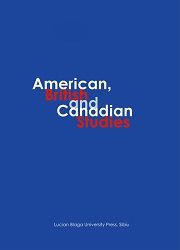
Starting from the premise that contemporary crisis is a pervasive continuation of the modern “series of interrelated crises” (Fernández-Caparrós and Brígido-Corachán vii), this article examines the manner in which the US theater has responded to the outbreak of the COVID-19 pandemic. Simultaneously considering crises as “agents of change and transformation” (xvii) and bearing in mind the #MeToo, and Black Lives Matter movements, the article questions the likelihood of contemporary American theater overcoming its own crisis of representation. Relating modern and current crises, the essay first outlines twentieth century dramatic literature and theaters against the backdrop of the World Wars, the 1918 health crisis, economic depression, and post-war (racialized) society, focusing on plays by American women of color. The study then centers on dramatic and theatrical developments brought about by the annus horribilis of 2020, surveying new genres, authors and performances, and discerning no significant improvement in systemic discrimination on Broadway stages. The essay also offers complementary reading of Trouble in Mind (1955), a meta-drama mirroring systemic racial and gender discrimination in American theaters, and By the Way, Meet Vera Stark (2011) which unravels similar issues, albeit in the film industry.
More...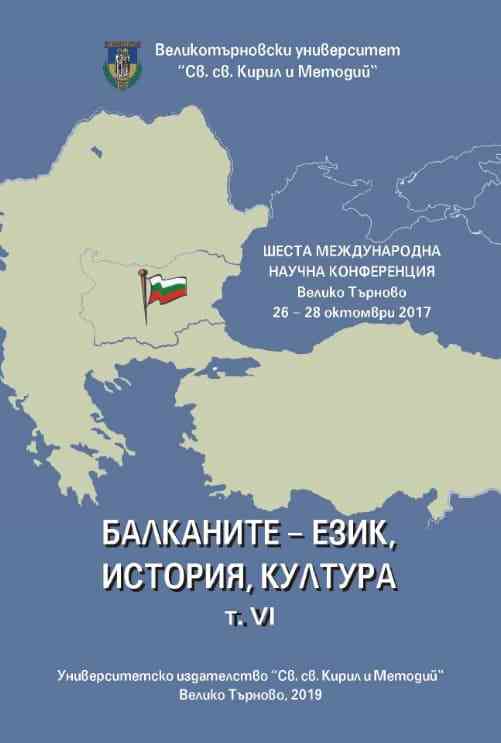
The basic link between the four authors, mentioned in the title of the present research, is the constituting of the dialogue between the cultures in the topos of ‘between’, ‘the border space’. Central to the plotline of the novels are the so-called ‘not-places’ (non-lieux, Nicht-Orte) (Auge), transtopoi (Foucault) - airports, railway stations, harbours, planes, trains, ships, refugee camps, hotels, vacation places, parking lots, gas-stations, shopping malls. „The open“ spaces are not the only local markers; they often turn into a main character in that type of literary texts. These are the spaces that question standard models of behaviour and thinking; that change identities, transfer and gather together different cultural standards.
More...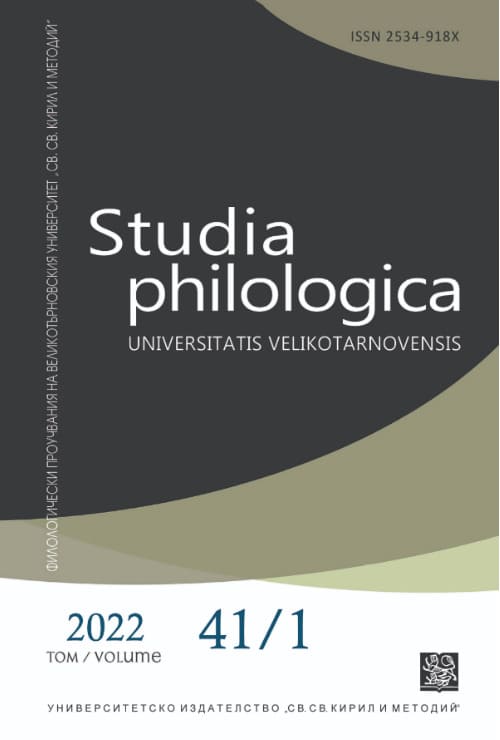
The text presents the views on Dostoevsky’s work of Polish emigrant writers after 1939, who published in the emigrant publishing house “Culture”: Witołd Gombrowicz, Czesław Miłosz, Stanisław Lem, Gustaw Herling-Grudziński, Stanisław Mackiewicz, Jerzy Stempowski, Józef Czapski. Their main texts are analyzed, in which the following issues are covered: the Russian specificity of his religious and philosophical views; Polish-Russian relations and the question of Dostoevsky’s „polonophobia”, relations between Russia and the West; universal philosophical-psychological and existential views of man and society; literary polyphony.
More...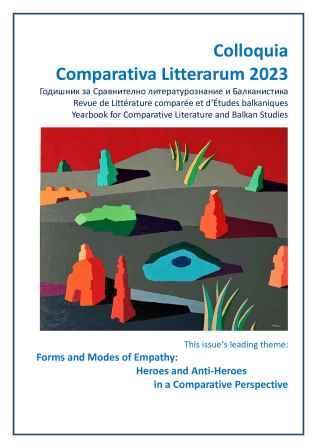
Book review: Galin Tihanov. World Literature, Cosmopolitism, Exile. Sofia, Kralitsa Mab, 2022.
More...
Book review: Vladimir Sabourín. Studies. 2023
More...
Book review: Antoaneta Robova. Artistic Characters and Cycle of Arts in Eric-Emmanuel Schmitt’s Prose Writings. Sofia, St Kliment Ohridski University Press, 2022, 304 p., ISBN 978-954-07-5505-2
More...
Book review: Angel V. Angelov. Philology, Literature and Symbolic Geography of Europe: Erich Auerbach, Leo Spitzer, Edward Said, Stefan Zweig, Hugo von Hofmannsthal. Sofia, Bulged, 2022.
More...
Book review: Miglena Nikolchina, God with Machine. Subtracting the Human (From Romanticism to Transhumanism). Sofia, Versus Publishing, 2022
More...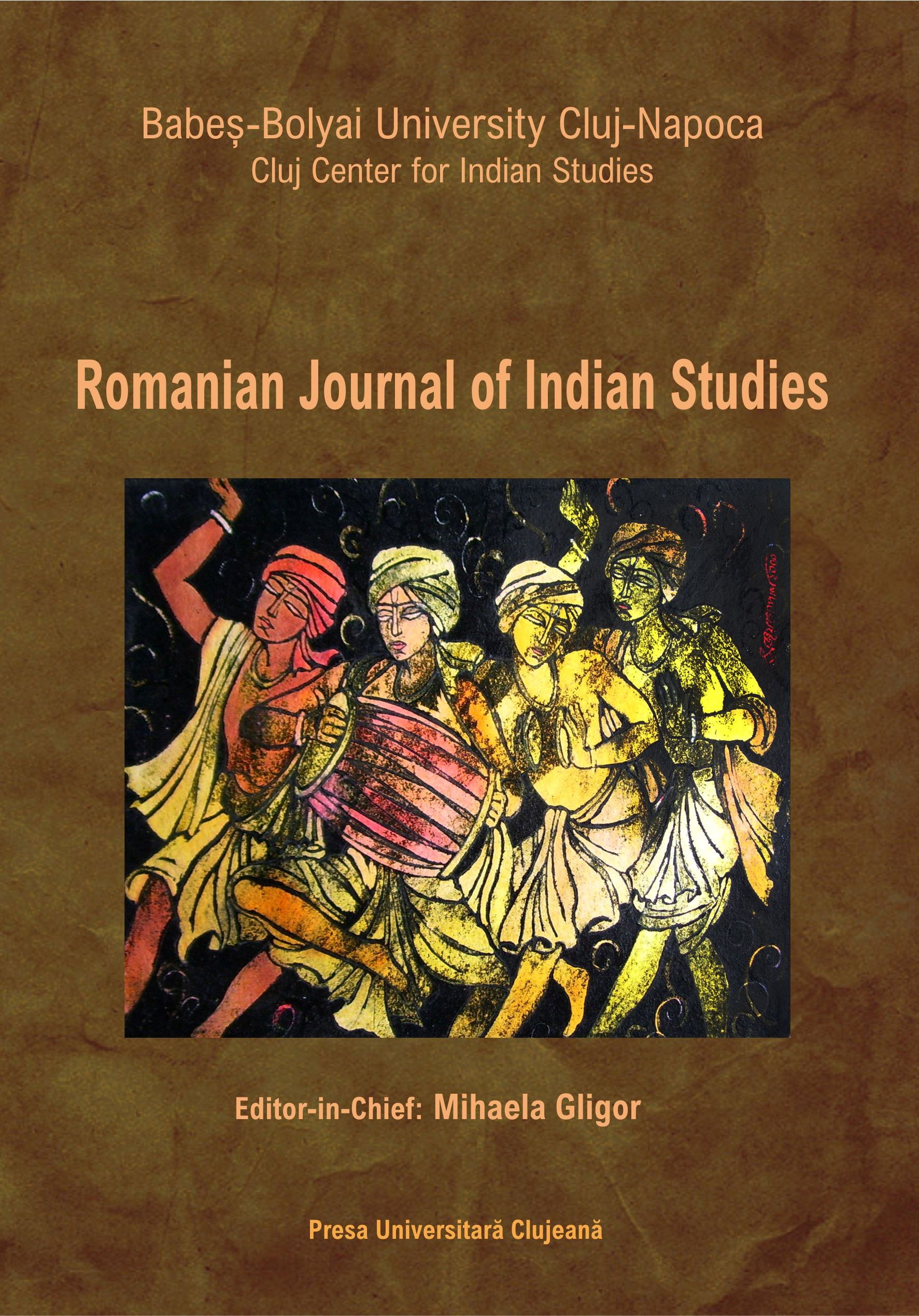
This paper compares the five texts regarding Padmasambhava written before Zangs gling ma (dBa’ bzhed and four manuscripts discovered in Dunhuang - Pelliot tibétain 44, IOL Tib J 321, IOL Tib J 644 and Pelliot tibétain 307) with the texts from Zangs gling ma, in an attempt to identify similarities and differences between them and to reach conclusions resulting from examining them together. The paper also addresses the question of historical credibility of Zangs gling ma, taking into consideration its connection with dBa’ bzhed, as well as the question on length of Padmasambhava’s stay in Tibet, by identifying texts in Zangs gling ma that refer to places in Tibet where the master stayed.
More...
Review of: Mihaela Gligor and Elisabetta Marino (Eds.), Tagore beyond Borders: Essays on His Influence and Cultural Legacy. London, New York: Routledge, 2023
More...
Review of: Mihaela Gligor & Lipi Ghosh (Eds.), Between Two Worlds: Romania and India. Essays on Expanding Borders through Culture, Cluj-Napoca: Cluj University Press / Presa Universitară Clujeană, 2023.
More...